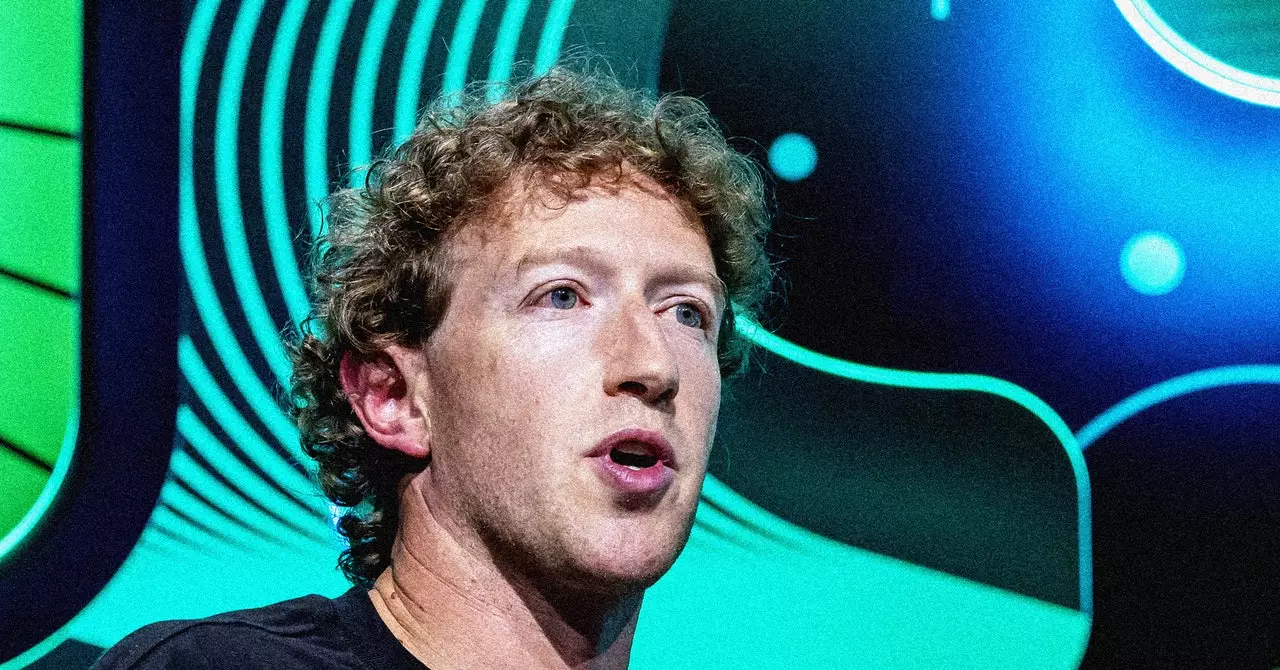The digital landscape is continually evolving, and its impact is amplified when powerful figures like Mark Zuckerberg make pivotal decisions that shift the trajectory of social media platforms. Once perceived as a champion of responsible communication, Zuckerberg’s recent actions raise profound ethical questions regarding the role of social media in curbing misinformation and promoting healthy discourse. This article dissects his transformation over the years from seeking accountability in content moderation to advocating for a more laissez-faire approach toward harmful speech.
In April 2018, Zuckerberg seemed earnest in his mission to regulate the toxic content that had begun to plague social media. During a time when Facebook was under heightened scrutiny, he openly acknowledged the damages caused by the rampant spread of misinformation and hate speech. With a commitment to robust moderation, he promised to invest in human oversight and advanced AI to manage content proactively. His stance reflected a growing acknowledgment of the platform’s influence and the responsibility that came with it.
Fast forward seven years, and the narrative has shifted dramatically. In a recent announcement, Zuckerberg denounced his previous commitment, describing it as a regrettable capitulation to external pressures regarding public health discourse and other sensitive topics. His pivot away from content moderation indicates a disturbing trend: a prioritization of “free expression” over the accountability mechanisms that he once championed. This shift not only undermines years of labor aimed at fostering a more responsible online environment but also signals an unsettling retreat into dangerous rhetoric.
Under Zuckerberg’s new framework, the reliance on traditional journalism has been notably diminished. He has dismissed the rigorous practices of established media as equivalent to the unchecked opinions of influencers and laypersons on social platforms. By labeling “legacy media” as a force of censorship, he seems to advocate for a more chaotic form of information dissemination, where unverified claims can flourish alongside factual reporting. The implications of this are profound, diminishing trust in established journalistic institutions and enabling the proliferation of disinformation.
The replacement of professional fact-checkers with “community notes” is particularly concerning. This system, reliant on user-generated input, compromises the validity of information by placing the onus of truth verification on individuals with varying levels of expertise. While community involvement is crucial, it can lead to a dilution of credible information if participants dispute the very premise of objective truth. In this context, the democratic notion that more voices confer greater integrity risks spiraling into an echo chamber of unfounded claims.
Zuckerberg claims this new direction allows for enhanced “free expression,” yet this comes at the cost of responsible discourse. The argument for more speech as a remedy for bad speech assumes a baseline level of credibility and trust in the information being shared. However, in a landscape where misinformation has become pervasive, the idea that simply allowing more opinions will counterbalance falsehoods is dangerously simplistic. This “greater freedom” has the potential to enable the spread of harmful rhetoric, echoing the tactics of figures like Donald Trump, who have successfully discredited truth and journalism.
Trump’s strategy involved vilifying credible media sources to undermine their authority—one that Zuckerberg appears to be inadvertently adopting. By recasting professional journalism as irrelevant in favor of unverified community contributions, Zuckerberg may unwittingly be fostering an environment where lies can thrive. Trump’s approach, which was explicitly aimed at sowing distrust, seems to resonate within Zuckerberg’s current policies as well.
In light of these developments, Zuckerberg’s recent policy shifts demand serious scrutiny from users, regulators, and media advocates alike. The trajectory he has chosen not only endangers the integrity of information flow but invites a dangerous era of misinformation. It is vital for society to engage critically with social media and its role in shaping public discourse.
The challenge lies ahead: can we strike a balance between necessary free expression and the duty to uphold truth? While community engagement is essential, it cannot substitute for comprehensive fact-checking and moderation that ensures harmful content is effectively managed. As consumers of information, it is incumbent upon us to advocate for ethical practices in digital spaces, holding platforms accountable while demanding transparency in their operations. The responsibility does not solely rest on influencers and everyday users; it is also a call to action for tech leaders to embrace accountability over convenience, ensuring that the digital world fosters informed and healthy dialogue.

